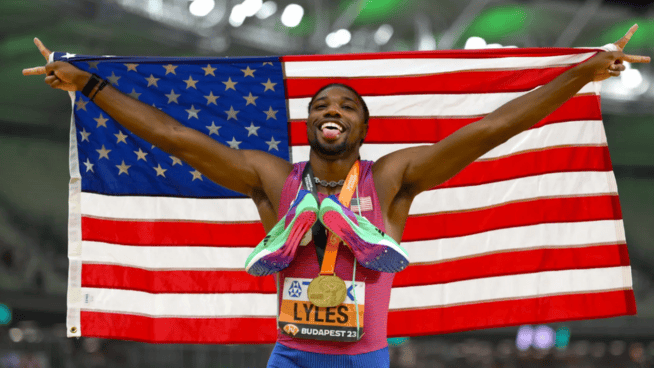The NCAA Did Not Remove Standards for Athletes for College Admissions
On October 15, 2021, the NCAA’s Standardized Test Score Tasks Force did not flat-out state that test scores will be removed from initial entry requirements. Instead, the Task Force only recommended the removal of standardized test score requirements. This recommendation stems from certain criteria such as the impact of covid, colleges already moving away from the measure, and other variables that the Task Force considered.
Thus, as it stands currently, no legislation from the NCAA has been put into place removing the standards, and an athlete will still more than likely still need to take at least one test.
But, as colleges and society changes and adapts to students and their needs, that could change in the long-term future.
Shifting Requirements
Covid impacted every part of society from healthcare to government to groceries to schools. Students at all levels suffered from the pandemic-induced school closures and forced online schooling. Because of the emphasis of social distancing, even standardized testing became much more difficult to organize, support, and proctor. Students were unable to take these tests at convenient times.
Institutions recognized the lack of options for students to take the once golden standard tests of the SAT and ACT and so implemented test-optional admissions for students. Even current college students vying for a graduate or post-graduate slot in a STEM or medical field saw their requirements for lab suspended to allow online labs or none at all.
Many colleges, especially like those in California, have extended the test-optional admissions and have considered making them a part of the permanent admissions process. This would mean that while non-athletes would be able to apply to their university of choice without taking a test, the athlete would still be required because of the NCAA eligibility requirements.
Students from wealth who have more opportunity to pay for tutors providing extra study time and insider knowledge benefit more from the tests than those from a less-wealthy background. Lower-income students will not see tutors as an investment, but a waste of resources. Furthermore, cheating has become rampant in the test industry, marring the tests’ reputation into a fool’s golden standard.
NCAA Task Force
From those reasons mentioned above, the Task Force backs its decision to recommend the removal of the standardized test from NCAA requirements.
The Task Force believes that if even colleges are shifting away from the tests, perhaps it is time the NCAA does for its athletes as well.
However, even though standardized tests have become less sought after, it does not mean some schools still won’t require them or make other requirements more sought after. A school can always place their own minimum standards above the NCAA, and they have done so for decades. For instance, Georgia Tech and Wisconsin require core curriculum courses or high school work above the NCAA’s.
Meanwhile, institutions such as Notre Dame, Stanford, and Michigan place high value in academic prestige and will not even recruit Junior College athletes or risk harming their Academic Progress Rate, or rate at which athletes progress towards a degree.
Schools still want to be seen as prestigious institutions of knowledge and education, not merely a stepping-stone for athletes before the big leagues.
Adaptation
As the pandemic stretches and the impact of covid rages, more universities will adapt to students needs. This may mean that standardized tests do in fact see less merit and possibly no merit in the admissions process. However, admissions criteria and requirements will always exist. The NCAA will have to adapt to these changes as well.
RECOMMENDED FOR YOU
MOST POPULAR
The NCAA Did Not Remove Standards for Athletes for College Admissions
On October 15, 2021, the NCAA’s Standardized Test Score Tasks Force did not flat-out state that test scores will be removed from initial entry requirements. Instead, the Task Force only recommended the removal of standardized test score requirements. This recommendation stems from certain criteria such as the impact of covid, colleges already moving away from the measure, and other variables that the Task Force considered.
Thus, as it stands currently, no legislation from the NCAA has been put into place removing the standards, and an athlete will still more than likely still need to take at least one test.
But, as colleges and society changes and adapts to students and their needs, that could change in the long-term future.
Shifting Requirements
Covid impacted every part of society from healthcare to government to groceries to schools. Students at all levels suffered from the pandemic-induced school closures and forced online schooling. Because of the emphasis of social distancing, even standardized testing became much more difficult to organize, support, and proctor. Students were unable to take these tests at convenient times.
Institutions recognized the lack of options for students to take the once golden standard tests of the SAT and ACT and so implemented test-optional admissions for students. Even current college students vying for a graduate or post-graduate slot in a STEM or medical field saw their requirements for lab suspended to allow online labs or none at all.
Many colleges, especially like those in California, have extended the test-optional admissions and have considered making them a part of the permanent admissions process. This would mean that while non-athletes would be able to apply to their university of choice without taking a test, the athlete would still be required because of the NCAA eligibility requirements.
Students from wealth who have more opportunity to pay for tutors providing extra study time and insider knowledge benefit more from the tests than those from a less-wealthy background. Lower-income students will not see tutors as an investment, but a waste of resources. Furthermore, cheating has become rampant in the test industry, marring the tests’ reputation into a fool’s golden standard.
NCAA Task Force
From those reasons mentioned above, the Task Force backs its decision to recommend the removal of the standardized test from NCAA requirements.
The Task Force believes that if even colleges are shifting away from the tests, perhaps it is time the NCAA does for its athletes as well.
However, even though standardized tests have become less sought after, it does not mean some schools still won’t require them or make other requirements more sought after. A school can always place their own minimum standards above the NCAA, and they have done so for decades. For instance, Georgia Tech and Wisconsin require core curriculum courses or high school work above the NCAA’s.
Meanwhile, institutions such as Notre Dame, Stanford, and Michigan place high value in academic prestige and will not even recruit Junior College athletes or risk harming their Academic Progress Rate, or rate at which athletes progress towards a degree.
Schools still want to be seen as prestigious institutions of knowledge and education, not merely a stepping-stone for athletes before the big leagues.
Adaptation
As the pandemic stretches and the impact of covid rages, more universities will adapt to students needs. This may mean that standardized tests do in fact see less merit and possibly no merit in the admissions process. However, admissions criteria and requirements will always exist. The NCAA will have to adapt to these changes as well.
RECOMMENDED FOR YOU
Create A Free Recruiting Profile Today!
CaptainU helps athletes & parents not only be proactive but also to manage and take control of their entire recruiting journey.










